The following books are listed in the order they appeared on my 'books to get from the library' list, not the order I read them. I will try to avoid spoilers but I make not sure-fire promises.
“Our Dragon doesn’t eat the girls he takes, no matter what stories they tell outside our valley. We hear them sometimes, from travelers passing through. They talk as though we were doing human sacrifice, and he were a real dragon. Of course that’s not true: he may be a wizard and immortal, but he’s still a man, and our fathers would band together and kill him if he wanted to eat one of us every ten years. He protects us against the Wood, and we’re grateful, but not that grateful.”
This is the first paragraph of a wonderful novel with a strong Brothers Grimm vibe. Agnieszka lives on the edge of a malevolent Wood that has threatened to encroach on the valley and kingdom beyond for generations. The only force keeping it at bay is a man known as the Dragon who, every ten years, takes a girl from the valley back to his secluded tower. No one knows what happens to the girls while they're away, or even what it is the Dragon really does, but once released from their service at the end of ten years none of the girls are the same. When Agnieszka is chosen by the Dragon she is shocked and completely unprepared for the world of magic and pain that she is thrust into.
I really really really enjoyed this book. Fairytales have been a common theme in YA literature for a while now and it can start to feel like they're all the same but Novik tells a fresh new story that has that familiar feel but with new wonderfully crafted characters and a system of magic that is at once charming and dangerous. The writing was enchanting and nearly impossible to put down with strong tones of friendship, love, and the pain of loss. There is a scene that, while not graphic, is rather descriptive, for those that are sensitive to sexual content. Personally, that's the one thing I could have done without - I generally feel that emotionally deepening moments can be crafted in other ways - but, while the moment is significant for the main character, it does not dominate the story as a whole.
Tim has been trying to get me to read this series for ages and I'm actually about halfway through the third book right now if that's an indication of anything.
Mistborn is a large-scale fantasy story somehow fit into three books. Sanderson shows his incredible understanding of people, culture, politics, and the way leadership and power work all while expertly setting the stage with a magic system unlike anything you've ever seen before. The Final Empire has reigned with the Lord Ruler, who is worshiped as deity, at its head for a thousand years of ashfall and oppression. Vin has experienced the more brutal version of skaa childhood, only surviving by learning to walk the razor's edge of being useful but not noticeable in the criminal underground, trusting no one. It is only after meeting Kelsier, a Mistborn half-skaa with insane plans to overthrow the Lord Ruler, and somehow being drafted into those plans that she learns of her own status as Mistborn. But overthrowing a thousand year empire takes a team and Vin has to learn to ignore her deepest rooted instincts and figure out how to trust if they have any hope of succeeding and bringing freedom to a world that's forgotten what hope is.
I had a little exposure to Sanderson's fantasy writing with The Wheel of Time and Mistborn carries a similar tone. Sanderson is a master world-builder and I am continually amazed at the depth of development in this series. History, religions, and cultures are all clearly imagined and distinct, not to mention Allomancy. Creating a magic system that doesn't feel like a copy of something everyone has heard before is a pretty big challenge and Sanderson blows it out of the water. Allomancers use ingested metals, burning them to bring about a variety of cause-and-effect results but you either have access to none, one, or all of them. Just a very cool concept, and wonderfully executed. I take it as a matter of course by now that characters will be real and flawed and undergo realistic growth which is still unfolding naturally two books later. Just, go read it.
In a premise that is somewhat reminiscent of Disney's Sleeping Beauty, Kelsea has been raised in the far recesses of her deceased mother's kingdom since infancy. At nineteen she must make the treacherous journey to her nation's capital city in order to ascend the throne that is rightfully hers. But there are numerous parties that have an interest in this would-be monarch including her glutenous uncle who has been acting as regent since her mother's death, a suitably dashing and mysterious Robin-Hood-esque outlaw, and her nation's biggest threat: the Red Queen, a powerful sorceress that rules the land across the mountains. Kelsea will have a lot of growing up to do if she is to even reach the capitol alive and she'll have to take a lot of risks to secure her throne and free her people.
I didn't have exceedingly high expectations for this book and while it wasn't mind-blowing I was pleasantly surprised at the depth of plot and characters. This is a novel that has that easy balance of action, sweet romance, and suspense. Kelsea started out a little immature for my impression of a nineteen year old but that does serve to emphasize the tremendous growth she undergoes in the span of a month or two. With assassinations, political maneuvering, and the mystery surrounding the sapphires that are Kelsea's birthright and the Red Queen's goal the story builds to an engaging climax that left me satisfied but also interested in reading the next installment of this story.
This was my first Goodkind novel and it's probably going to be my last. I just. I can't. It was so bad. I feel like someone should have warned me. This was physically painful for me to read and it's 600 pages long. I honestly can't even review this properly so I'm just going to rant for a bit.
The First Confessor is the first in a prequel series to Goodkind's NY Times Best Selling Series: The Sword of Truth. Which really just tells you that just because an author has been on the NY Times Best Sellers list doesn't mean that the book is actually any good. That may be unfair, I haven't read The Sword of Truth, but if it's anything like Confessor I definitely don't care to. Probably my most commonly vocalized complaint while forcing myself through this book was "Did an editor even see this? Did anyone bother to read this over first or was it just sent straight to print?" It just. It's bad, guys. Painful, stilted dialogue, characters coming to conclusions that don't connect, inconsistent characterization for that matter, and a main character that was just incredibly frustrating to read in the wracked-with-self-doubt-and-depression-but-still-super-confident-about-things-I-constantly-admit-to-having-no-knowledge-of-etc kind of way. The story itself had so much promise but it easily could have been told in 200 pages. I feel so bad for whoever actually bought this monstrous paperweight. Generally I try to give a book a fair chance but this was just too much for me to handle.
You guys have probably all seen the trailer for the movie by now [and no, I haven't seen the movie yet but it is on my list] so you probably know the gist. Astronaut Mark Watney was a member of one of the first crews to travel to and stay on Mars and then he becomes the first astronaut to be stranded on the red planet. A massive dust storm separates him from his crew as they are evacuating the planet, leaving him miraculously alive but without any way to communicate this to his fellow astronauts, let alone NASA. Mark's life becomes a second-by-second battle to live long enough to communicate with Earth and then to be rescued. The suspense kicks in right from the get-go and never lets you shift from the edge of your seat. This is the kind of thriller I can get into.
THIS WAS SO GOOD. I'm not really a science person so I wasn't sure how I'd feel about the heavy inclusion of chemistry, biology, engineering, etc that lend this work it's fairly unique credibility but I really really enjoyed it. Weir includes scientific jargon and explanations in a way that feels natural for Mark's setting and first person narrative but doesn't overwhelm the reader to the point that us ignorant people can't follow the story. The plot jumps from Mark's first person logs and third person scenes at NASA and perfectly embodies some writing advice I once received: stick your character up a tree, then throw rocks at them. Mark's situation presents enough natural stress and suspense but Weir keeps cranking it up with wrench after wrench with precision timing and expert hand. It was almost impossible for me to pay attention to anything else while I read this. You root for Mark and argue right along with everyone at NASA about the best way to handle each new development and stumbling block right down to the last nail-biting moment.
My only complaint really is the amount of language which was a bit of a barrage for me.
This book came recommended from a friend and served as a bit of an extension of my WWII-era historical fiction kick from last time.
Marie-Laure has lived her whole life in Paris with her father who works as the locksmith of the Museum of Natural History. When she goes blind her father builds a miniature of their neighborhood so she can learn to get around again and other staff at the museum nurture her curiosity of science. At twelve, the Nazis occupy Paris and Marie-Laure and her father must flee to the seaside home of the agoraphobic great-uncle she's never met. But her father is carrying what might be the most valuable and dangerous jewel ever cataloged in the museum and rumored curse it carries follows them to Saint-Malo along with those who are searching for it.
Werner, orphaned along with his younger sister in a mining town in Germany, has always been enthralled by all things mechanical and first draws attention to himself as the town's radio mechanic. His talent with this new technology thrusts him into a elite but brutal school for Hitler Youth where he receives his first taste of acclaim but also moral and ethical uncertainty. The war takes him across eastern Europe and finally France, tracking down and eliminating enemy resistance which exacts a higher and higher toll on Werner's personal well-being. His story collides with Marie-Laure in Saint-Malo just as the war is ending.
I went into this expecting Werner and Marie-Laure's stories to overlap a lot more than they did but once I adjusted to the dual story line I really enjoyed it, as much as one can enjoy a story that tackles many of the dark aspects of this world war. Doerr did a really impressive job with Marie-Laure's perspective. Lacking site, her PoV was not lacking in description or detail. With a fantastic supporting cast, All the Light is a story that captures the lingering and bone-deep sadness that forever tinted the lives of those who lived through such terrible ordeals and lost so much along the way. The resolution does not feel as all-encompassing and satisfying as you might wish but I think that just highlights the real damage done by war, poignantly captured in a novel that somehow mixes whimsy and superstition with hard science and history.
Marie-Laure has lived her whole life in Paris with her father who works as the locksmith of the Museum of Natural History. When she goes blind her father builds a miniature of their neighborhood so she can learn to get around again and other staff at the museum nurture her curiosity of science. At twelve, the Nazis occupy Paris and Marie-Laure and her father must flee to the seaside home of the agoraphobic great-uncle she's never met. But her father is carrying what might be the most valuable and dangerous jewel ever cataloged in the museum and rumored curse it carries follows them to Saint-Malo along with those who are searching for it.
Werner, orphaned along with his younger sister in a mining town in Germany, has always been enthralled by all things mechanical and first draws attention to himself as the town's radio mechanic. His talent with this new technology thrusts him into a elite but brutal school for Hitler Youth where he receives his first taste of acclaim but also moral and ethical uncertainty. The war takes him across eastern Europe and finally France, tracking down and eliminating enemy resistance which exacts a higher and higher toll on Werner's personal well-being. His story collides with Marie-Laure in Saint-Malo just as the war is ending.
I went into this expecting Werner and Marie-Laure's stories to overlap a lot more than they did but once I adjusted to the dual story line I really enjoyed it, as much as one can enjoy a story that tackles many of the dark aspects of this world war. Doerr did a really impressive job with Marie-Laure's perspective. Lacking site, her PoV was not lacking in description or detail. With a fantastic supporting cast, All the Light is a story that captures the lingering and bone-deep sadness that forever tinted the lives of those who lived through such terrible ordeals and lost so much along the way. The resolution does not feel as all-encompassing and satisfying as you might wish but I think that just highlights the real damage done by war, poignantly captured in a novel that somehow mixes whimsy and superstition with hard science and history.
This is the first in a three-part series of Worth's memoirs of her time as a midwife in Poplar, England. I discovered the British mini-series before learning of the printed work. I've devoured the show and the books were just the same. Many of the stories were familiar from the mini-series but there were several others that the tv show didn't have time to include and I loved learning more about Worth's experiences. One of the reasons I love this memoir [mini-series included] is the honesty with which Worth approaches the telling. Being a midwife in the 1950s slums was not an easy task and she confronts the sadness, disparity, betrayal, heartache, injustice, and horrors lived by so many people cast in great contrast along side the beauty and pure joy of bringing new life into the world. I can tell it's one of the few historical depictions that I will come back to again and again and I'm sure that I will find myself laughing and crying just as much in fifty years as it elicits from me now.
In both the printed work and the tv adaptation there is very little sexual or graphic content though basic anatomy is discussed and numerous births are depicted.
The Royal We [Heather Cocks, Jessica Morgan]
Okay, this book is very clearly meant to mirror Prince William and Kate Middleton's relationship, like, super obviously. The story is told from American Rebecca's [Bex] perspective and begins with the start of her study abroad trip to England where she happens to room on the same floor as Nick, heir to the crown. Their relationship passes from friendship to dating to broken up to tortuously apart to reconciled and at the eve of their wedding.
While there isn't necessarily anything wrong with the premise I had a hard time reading this. I have an inherent skepticism of books that are written by two people and the fact that this paralleled pretty closely to at least the bare-bones of the real royal relationship just made it difficult to be really pulled into the story and feel any sense of heightened stakes because you know how it turns out. I mean, Nick has a younger brother with better hair and a reputation as a bit of a playboy, an emotionally distant father, and a mother who isn't actively in the picture though it's because her mind has broken, not because she died in a car crash. There were several points throughout the novel where I just felt a little weird reading a fictionalized representation of a real life couple and wondered if these ladies aren't potentially vulnerable to some kind of lawsuit. Those qualms aside, I really struggled with Bex's character. I never felt like I could nail her down as her behavior and personality kept jumping around and contradicting itself. I appreciated the look into the many pressures and touchy situations that come with a super public life like that but the worthwhile aspect of the story wasn't really large enough for me to say the book was worth my time, esp considering the insane amount of sleeping around everyone does. Necessary? No. No it's not.
This novel has been compared to Gone Girl in terms of unreliable narrators. I haven't read Gone Girl due to content concerns and I was a little wary going into The Girl on the Train when I read that review but I was relieved to find that, while a wonderfully written suspense thriller with a small strings of sexual content, Train is not a graphic story.
Rachel, still caught in a self-destructive cycle from her traumatic divorce, has kind of adopted "Jess and Jason," a couple she has observed almost every day on her commute. They live a few doors down from her old house where her ex now lives with his new wife and infant daughter and their seemingly happy life is a perfect contrast to the pain and failure in her own. Seeing Jess and Jason provides the one bright spot in her day until she sees something that shatters her romanticized narrative. When Jess disappears, Rachel offers what she saw to the police and becomes invested and involved in discovering what happened to this woman she never met. Finding the truth will strain all her relationships, force her to confront her own alcoholism, and even dig through her own recent past to discover things that her own mind had hidden from her.
Hawkins does such a phenomenal job of trailing you along as the reader. Clues come out of order and like teasing breadcrumbs that you desperately try to sort through ahead of Rachel herself. Abounding with red herrings, flawed and misunderstood/misrepresented characters, Train reminds you that we only ever see a fraction of other people's lives and even then what we're seeing is so often different from what is really happening.
Firefight [Brandon Sanderson]
As the sequel to Steelheart, Sanderson begins to seriously ramp up the mystery and tension that will culminate in the final book: Calamity. He keeps up his reputation for startling surprises and revelations that cast the narrative in a new and evermore intriguing light.
In the wake of Steelheart's death, David finds himself feeling adrift. His life's purpose has been fulfilled but he's unsatisfied and chock full of questions that have no answers in the newly liberated Newcago. So when Prof decides to go to Babylon Restored [Babylar], what used to be NYC, David is more than happy to be included in the team. Facing another High Epic seems like it should be business as usual but Regalia runs a very different empire from Steelheart's and David has to navigate layers of mystery along with the flooded city and a world that looks and feels entirely different from his life in the steel city. Tracking down and taking out Regalia will cross his path once again with Firefight, the girl he hasn't seen since Steelheart's defeat and who is wrapped in her own mystery but may have some of the answers David needs to put the whole puzzle together. Epic action combines again with quirky humor to make a satisfying second showing in the Reckoners trilogy that may leave you angry that Calamity doesn't come out until February 2016.
I am definitely a fan of this series and Firefight didn't disappoint. The character development and depth was a real pleasure to read and Sanderson's world-building is, as always, well-crafted and refreshingly imagined. New secondary characters do suffer a little in this book in favor of developing our main cast and I missed Cody and Abraham who were left to oversee things in Newcago. Regalia's secret kept me guessing right up until the end right along with David and the fact that things implode before he can make sense of it all gives the perfect amount of chaos, shock, and heartache to charge readers into the last installment of this story.


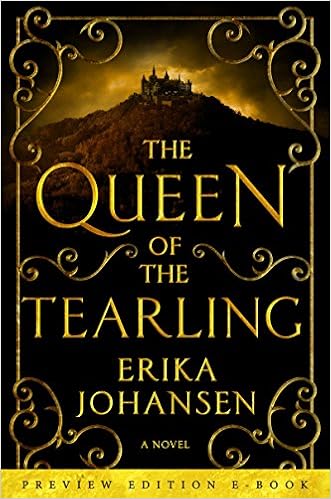
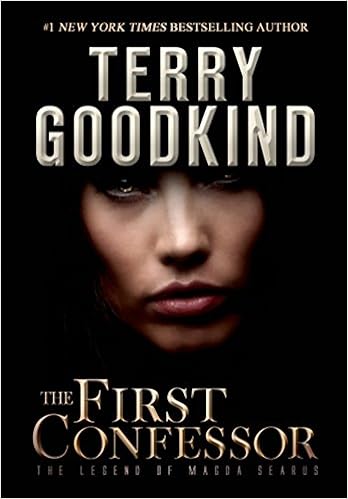
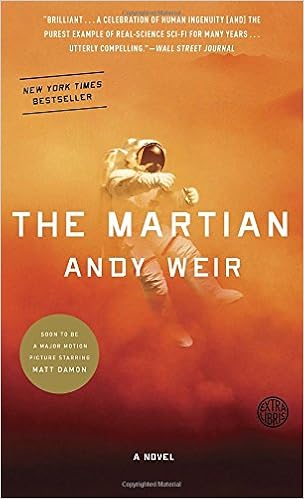
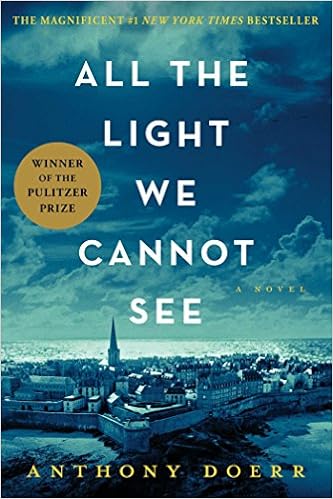
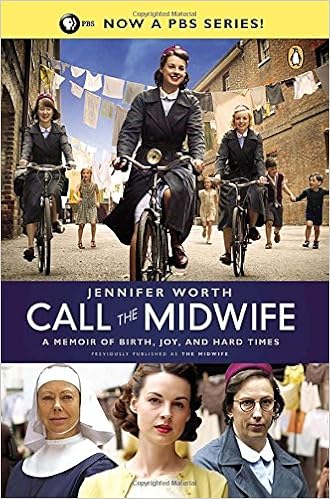
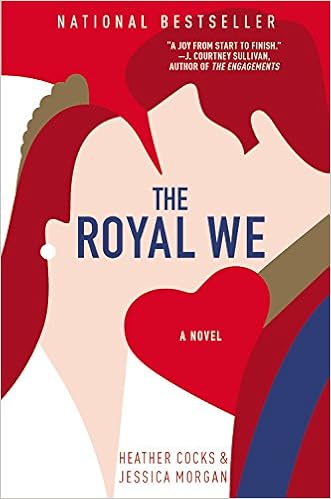
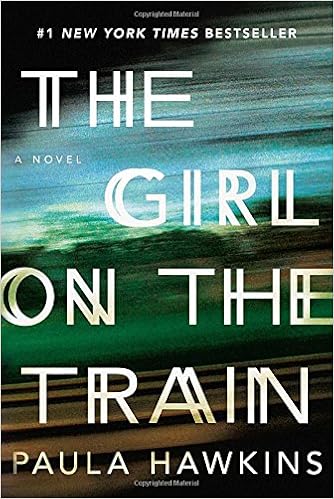
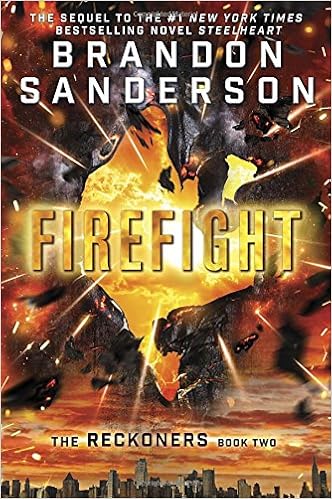
No comments:
Post a Comment